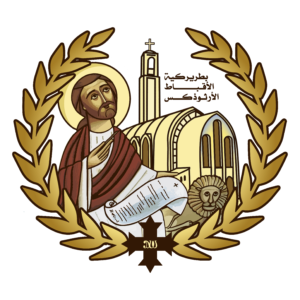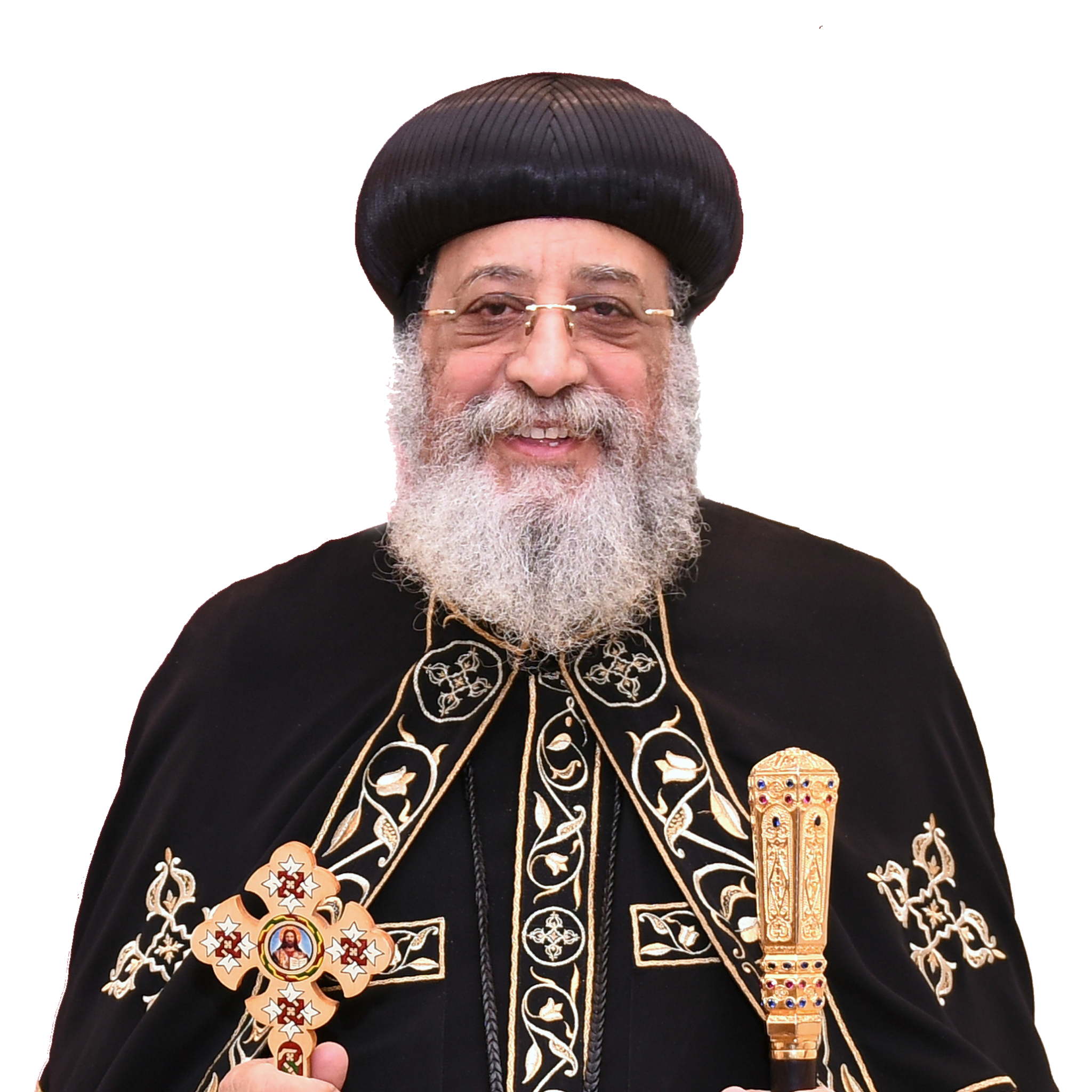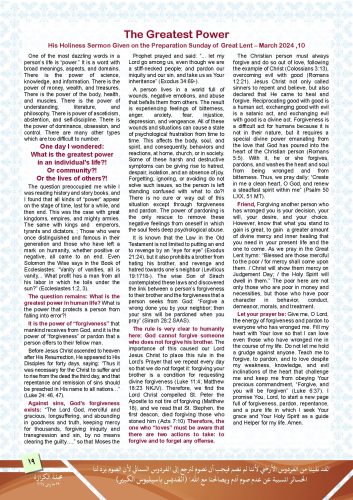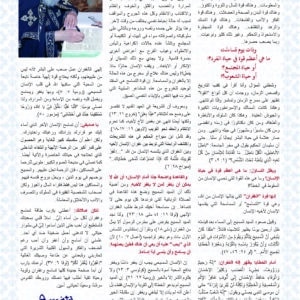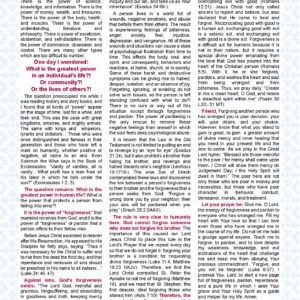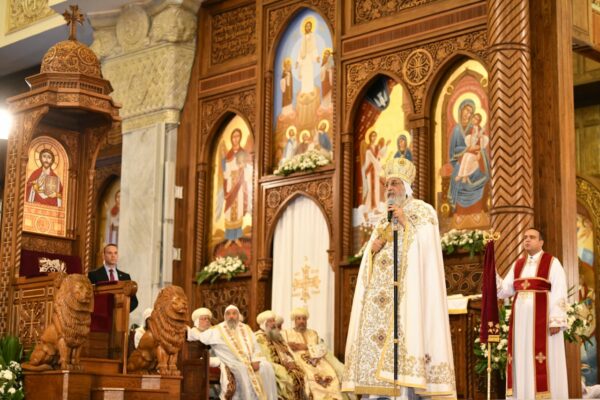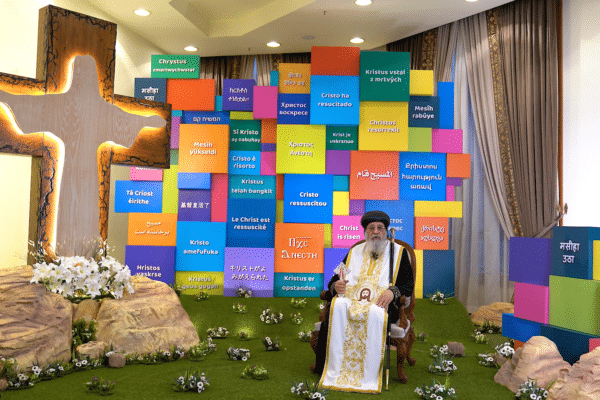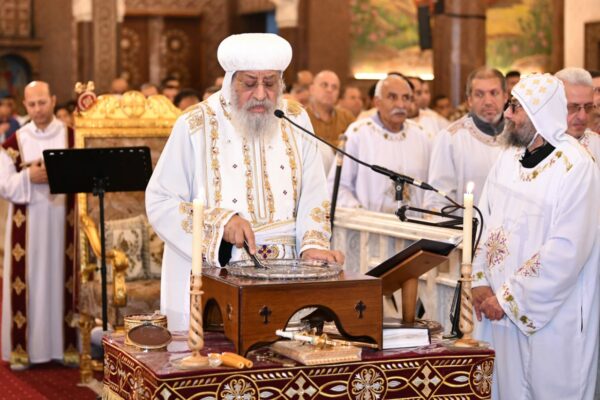One of the most dazzling words in a person’s life is “power.” It is a word with broad meanings, aspects, and domains. There is the power of science, knowledge, and information. There is the power of money, wealth, and treasures. There is the power of the body, health, and muscles. There is the power of understanding, literature, and philosophy. There is power of asceticism, abstention, and self-discipline. There is the power of dominance, obsession, and control. There are many other types which are too difficult to number.
One day I wondered:
What is the greatest power
in an individual’s life?!
Or community?!
Or the lives of others?!
The question preoccupied me while I was reading history and story books, and I found that all kinds of “power” appear on the stage of time, last for a while, and then end. This was the case with great kingdoms, empires, and mighty armies. The same with kings and emperors, tyrants and dictators. ; Those who were once distinguished and famous in their generation and those who have left a mark on humanity, whether positive or negative, all came to an end. Even Solomon the Wise says in the Book of Ecclesiastes: “Vanity of vanities, all is vanity… What profit has a man from all his labor in which he toils under the sun?” (Ecclesiastes 1:2, 3).
The question remains: What is the greatest power in human life? What is the power that protects a person from falling into error?!
It is the power of “forgiveness” that mankind receives from God, and it is the power of “forgiveness” or pardon that a person offers to their fellow man.
Before Jesus Christ ascended to heaven after His Resurrection, He appeared to His Disciples for forty days, saying: “Thus it was necessary for the Christ to suffer and to rise from the dead the third day, and that repentance and remission of sins should be preached in His name to all nations…” (Luke 24: 46, 47).
Against sins, God’s forgiveness exists: “The Lord God, merciful and gracious, longsuffering, and abounding in goodness and truth, keeping mercy for thousands, forgiving iniquity and transgression and sin, by no means clearing the guilty…,” so that Moses the Prophet prayed and said: “… let my Lord go among us, even though we are a stiff-necked people; and pardon our iniquity and our sin, and take us as Your inheritance” (Exodus 34:6-9).
A person lives in a world full of wounds, negative emotions, and abuse that befalls them from others. The result is experiencing feelings of bitterness, anger, anxiety, fear, injustice, depression, and vengeance. All of these wounds and situations can cause a state of psychological frustration from time to time. This affects the body, soul, and spirit, and consequently, behaviors and reactions, at home, church, or in society. Some of these harsh and destructive symptoms can be giving rise to hatred, despair, isolation, and an absence of joy. Forgetting, ignoring, or avoiding do not solve such issues, so the person is left standing confused with what to do?! There is no cure or way out of this situation except through forgiveness and pardon. The power of pardoning is the only rescue to remove these negative feelings from oneself in which the soul feels deep psychological abuse.
It is known that the Law in the Old Testament is not limited to putting an end to revenge by an “eye for eye” (Exodus 21:24), but it also prohibits a brother from hating his brother, and revenge and hatred towards one’s neighbor (Leviticus 19:17-18). The wise Son of Sirach contemplated these laws and discovered the link between a person’s forgiveness to their brother and the forgiveness that a person seeks from God: “Forgive a wrong done you by your neighbor; then your sins will be pardoned when you pray” (Sirach 28:2 SAAS).
The rule is very clear to humanity here: God cannot forgive someone who does not forgive his brother. The importance of this caused our Lord Jesus Christ to place this rule in the Lord’s Prayer that we repeat every day so that we do not forget it: forgiving your brother is a condition for requesting divine forgiveness (Luke 11:4; Matthew 18:23 NKJV). Therefore, we find the Lord Christ compelled St. Peter the Apostle to not tire of forgiving (Matthew 18), and we read that St. Stephen, the first deacon, died forgiving those who stoned him (Acts 7:10) Therefore, the one who “loves” must be aware that there are two actions to take: to forgive and to forget any offense.
The Christian person must always forgive and do so out of love, following the example of Christ (Colossians 3:13), overcoming evil with good (Romans 12:21). Jesus Christ not only called sinners to repent and believe, but also declared that He came to heal and forgive. Reciprocating good with good is a human act, exchanging good with evil is a satanic act, and exchanging evil with good is a divine act. Forgiveness is a difficult act for humans because it is not in their nature, but it requires a special divine power emanating from the love that God has poured into the heart of the Christian person (Romans 5:5). With it, he or she forgives, pardons, and washes the heart and soul from being wronged and from bitterness. Thus, we pray daily: “Create in me a clean heart, O God, and renew a steadfast spirit within me” (Psalm 50 LXX, 51 MT).
Friend, Forgiving another person who has wronged you is your decision, your will, your desire, and your choice. However, know that what you stand to gain is great, to gain a greater amount of divine mercy and inner healing that you need in your present life and the one to come. As we pray in the Great Lent hymn: “Blessed are those merciful to the poor / for mercy shall come upon them. / Christ will show them mercy on Judgement Day; / the Holy Spirit will dwell in them.” The poor here are not only those who are poor in money and necessities, but those who have poor character in behavior, conduct, demeanor, morals, and treatment.
Let your prayer be: Give me, O Lord, the energy of forgiveness and pardon to everyone who has wronged me. Fill my heart with Your love so that I can love even those who have wronged me in the course of my life. Do not let me hold a grudge against anyone. Teach me to forgive, to pardon, and to love despite my weakness, knowledge, and evil inclinations of the heart that challenge me and keep me from obeying Your precious commandment, “Forgive, and you will be forgiven” (Luke 6:37). I promise You, Lord, to start a new page full of forgiveness, pardon, repentance, and a pure life in which I seek Your grace and Your Holy Spirit as a guide and Helper for my life. Amen.
This page is also available in:
العربية
